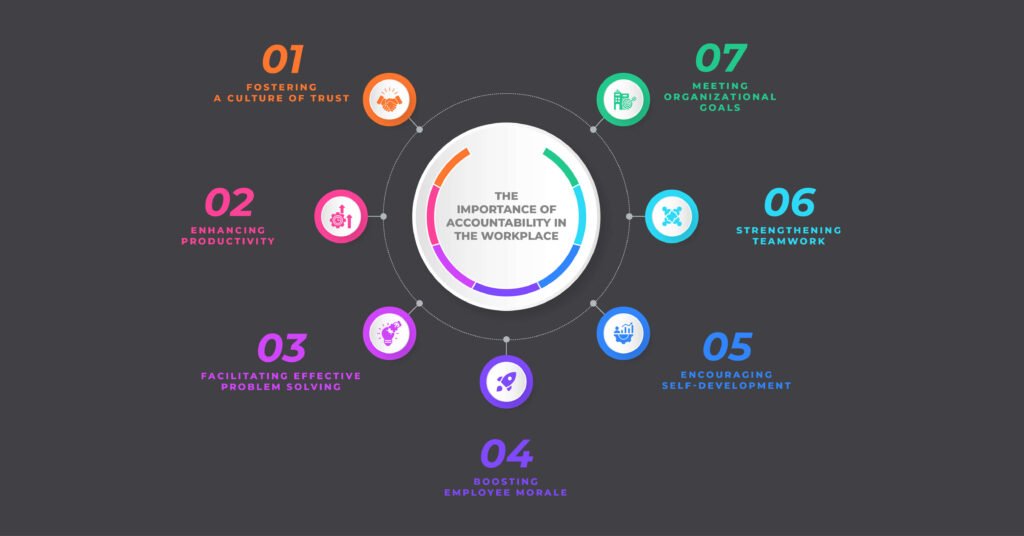Accountability is a fundamental aspect of any successful organisation. In the workplace context, employee accountability is a cornerstone that directly impacts not only the individual’s career but also the organisation’s overall success. When employees are accountable for their jobs, the entire team benefits, leading to increased productivity, improved teamwork, and a more robust corporate culture. This article will explore why employees should be accountable for their jobs and the positive outcomes it can yield.

1. Fostering a Culture of Trust
Accountability builds trust within an organisation. Trust is naturally established when employees consistently meet their responsibilities and deliver on their commitments. Trust is vital to any healthy workplace, as it creates a positive atmosphere where employees feel safe, valued, and respected. A culture of trust encourages open communication and collaboration, which is essential for a company’s success.
2. Enhancing Productivity
Accountable employees are more likely to be productive and efficient. When individuals take ownership of their tasks and are committed to fulfilling them, the organisation’s overall productivity increases. Employees who are accountable for their jobs ensure that deadlines are met, goals are achieved, and projects progress smoothly, which, in turn, benefits the company’s bottom line.
3. Facilitating Effective Problem Solving
Accountable employees are proactive in identifying and addressing problems. They take responsibility for finding solutions and improving instead of passing the buck or ignoring issues. This behaviour creates a culture of problem-solving and innovation, helping the organisation adapt and thrive in a constantly evolving business environment.
4. Boosting Employee Morale
Accountability can significantly boost employee morale. When employees see their colleagues and superiors are committed to their work and accountable for their actions, it sets a positive example. This, in turn, motivates others to take responsibility for their roles and responsibilities. A workplace with high morale is more pleasant to work in and more productive.
5. Encouraging Self-Development
Being accountable to one’s job also encourages personal growth and development. When employees take ownership of their roles, they are more likely to seek opportunities for improvement and self-development. This can lead to greater job satisfaction and career advancement, benefiting both the employee and the organisation.
6. Strengthening Teamwork
In a workplace where employees are accountable, teamwork becomes more effective. When everyone is responsible for their part in a project, teams can collaborate smoothly and efficiently. Each team member understands their role and is committed to delivering their best, leading to more robust, successful teams and projects.
7. Meeting Organizational Goals
Ultimately, an organisation’s success is built on the collective efforts of its employees. When each individual is accountable for their job, the organisation is more likely to meet its goals and achieve its mission. This leads to increased profitability, growth, and a competitive edge in the market.
Conclusion
Accountability in the workplace is not a one-sided expectation but rather a shared responsibility between employees and their employers. Employees accountable for their jobs contribute to a healthy organisational culture and help the company thrive. By fostering trust, increasing productivity, enhancing problem-solving, boosting morale, encouraging self-development, strengthening teamwork, and ultimately meeting organisational goals, accountable employees play a vital role in the success of any business. In a world where results measure success, being responsible is not just a choice; it’s a necessity for a fulfilling and prosperous career.
